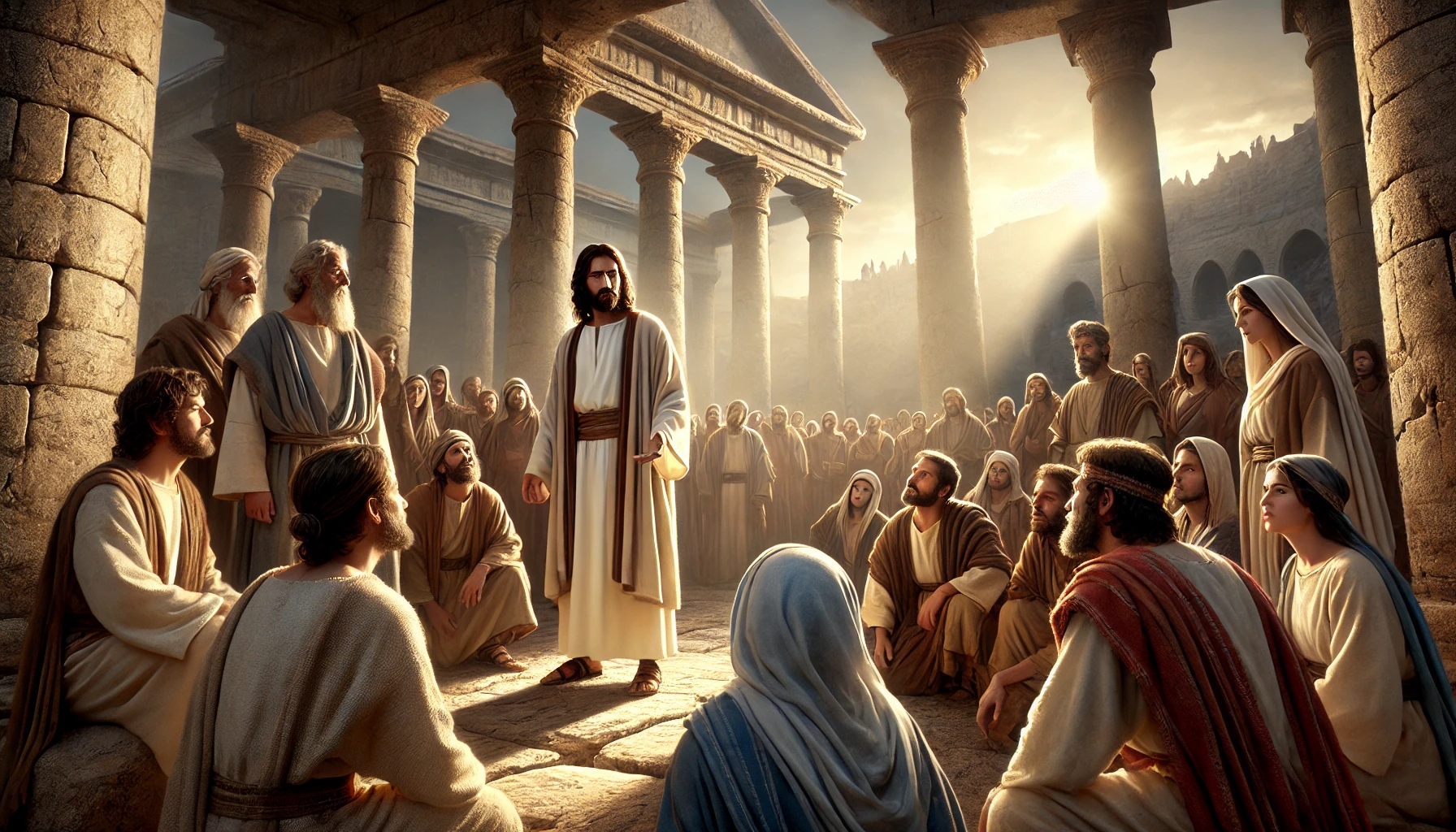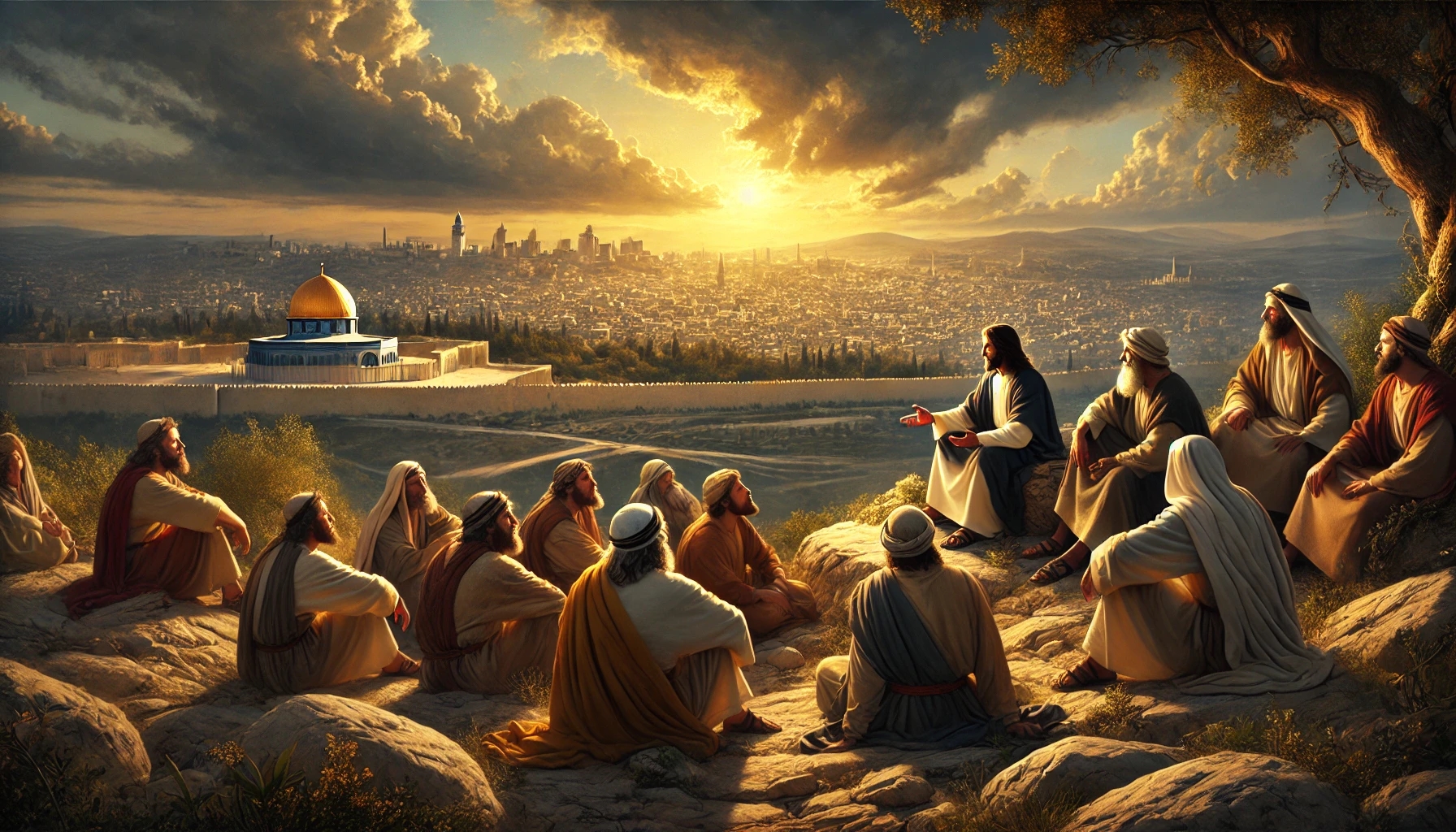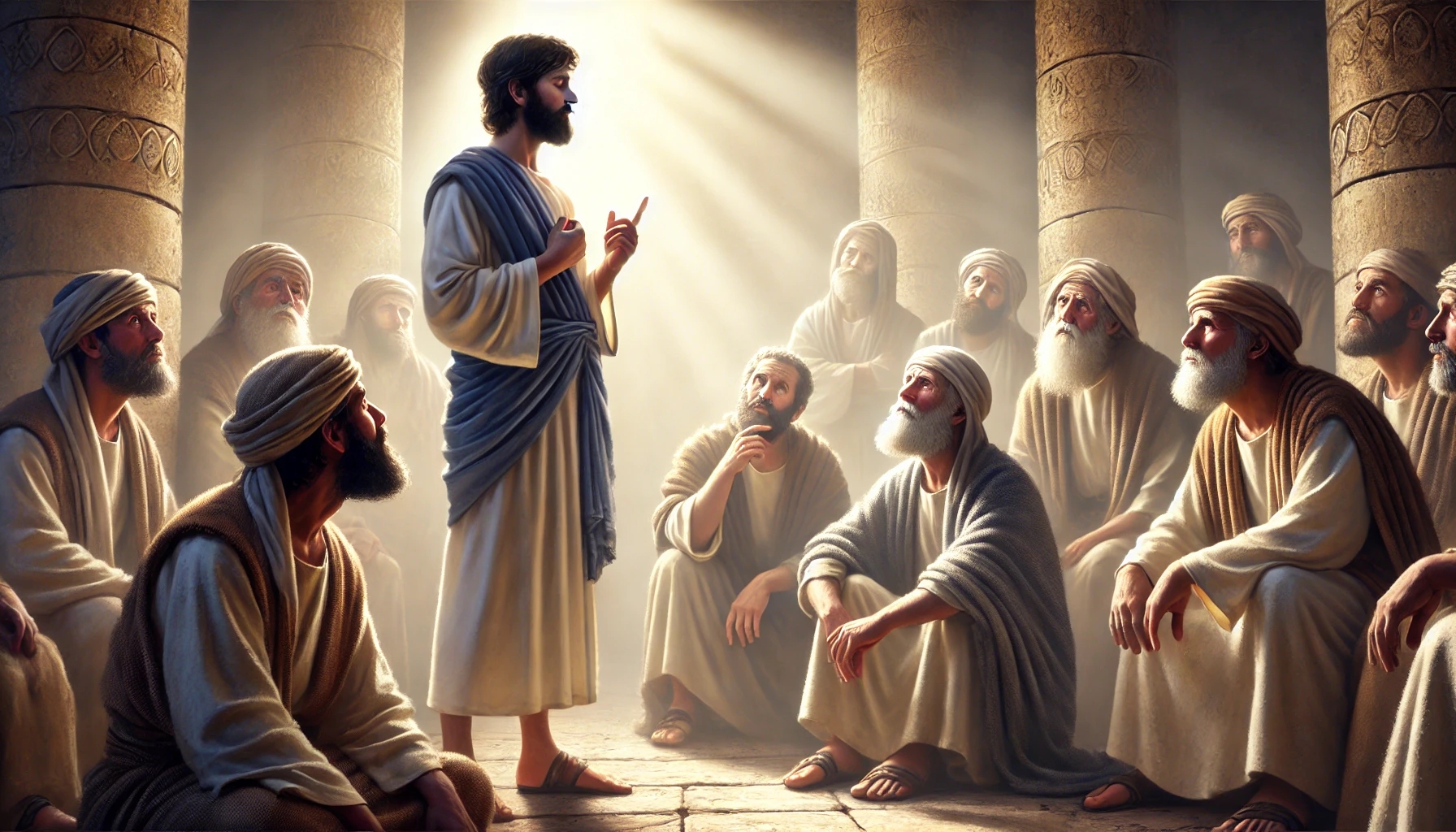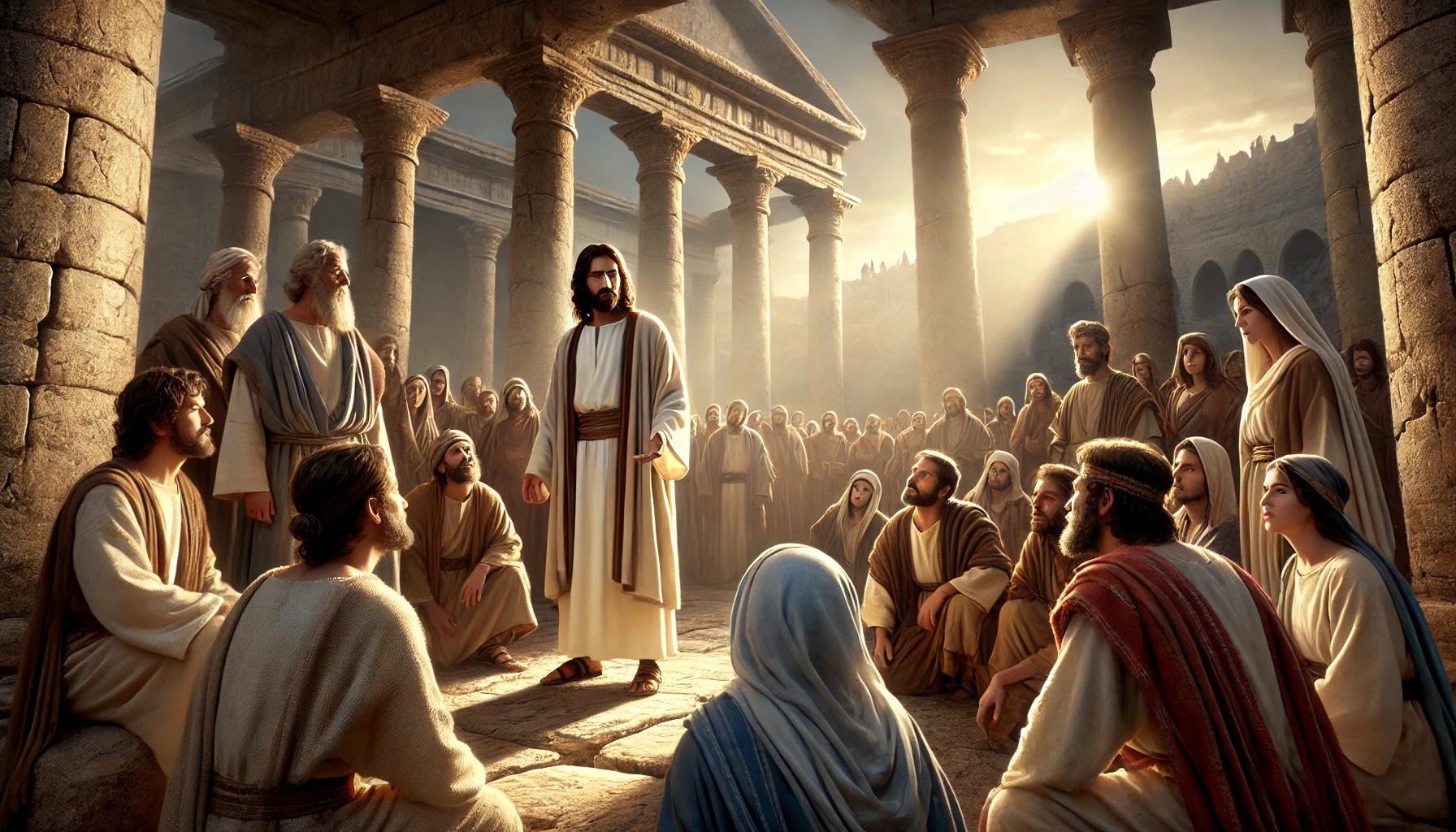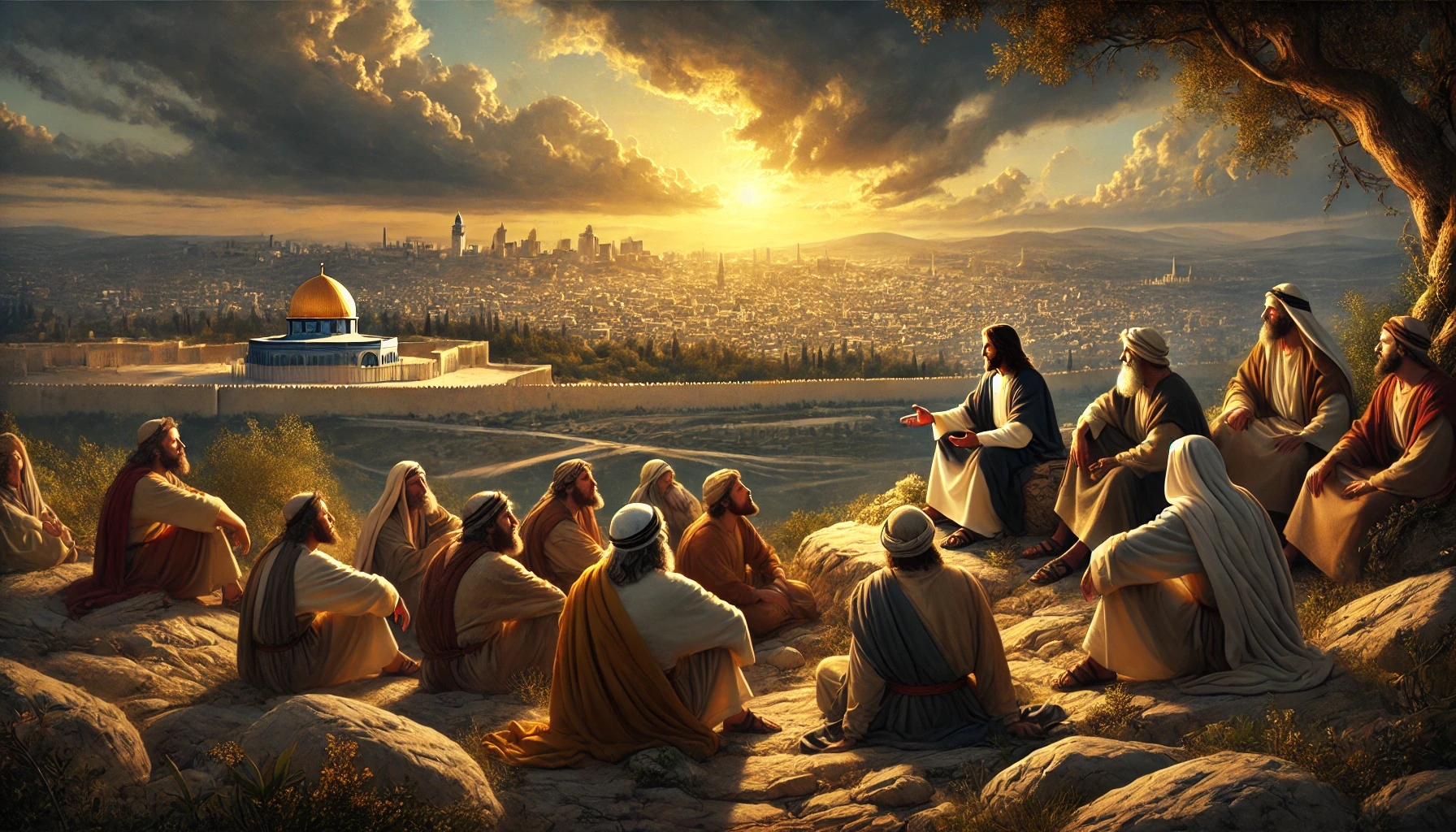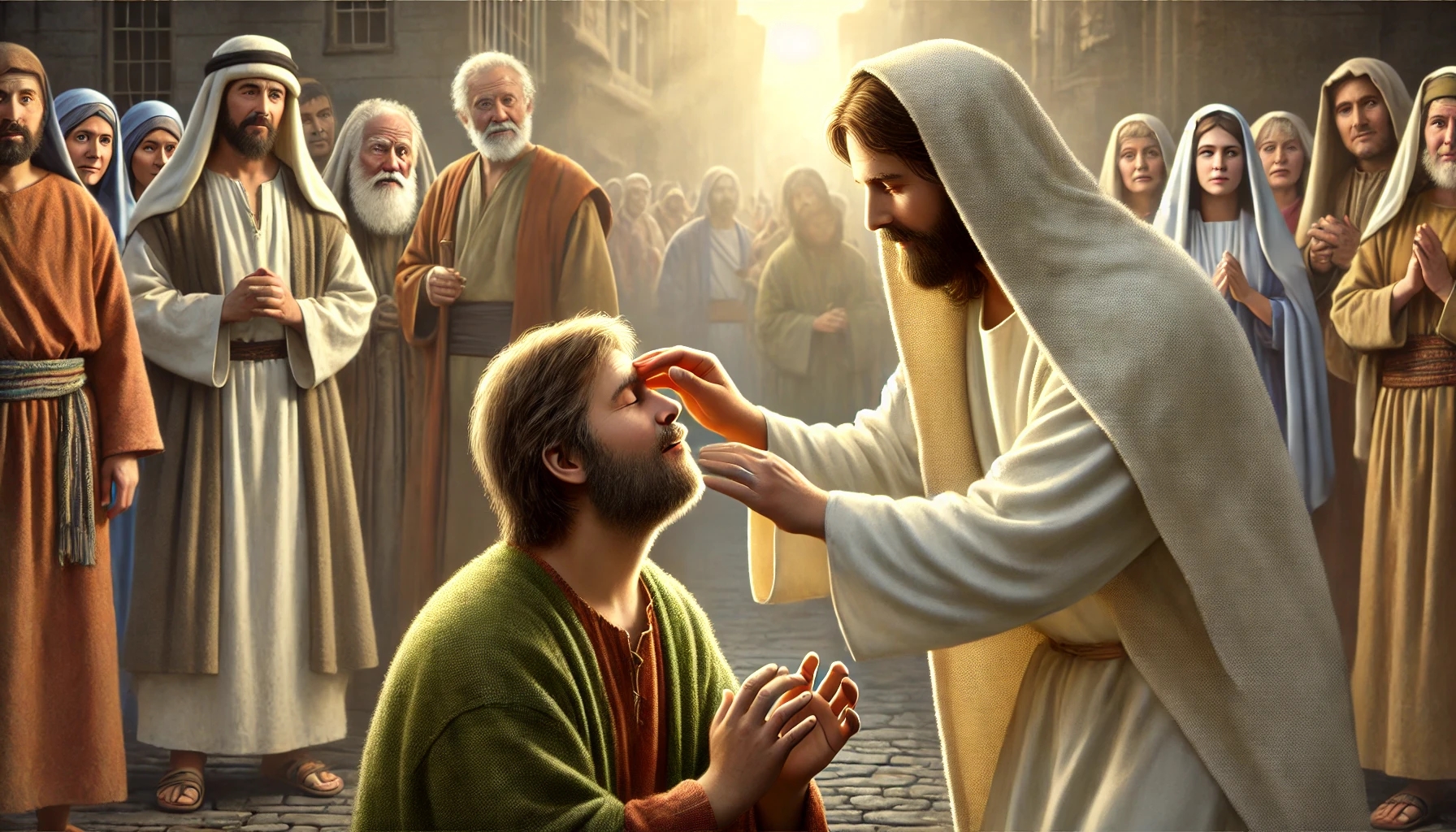
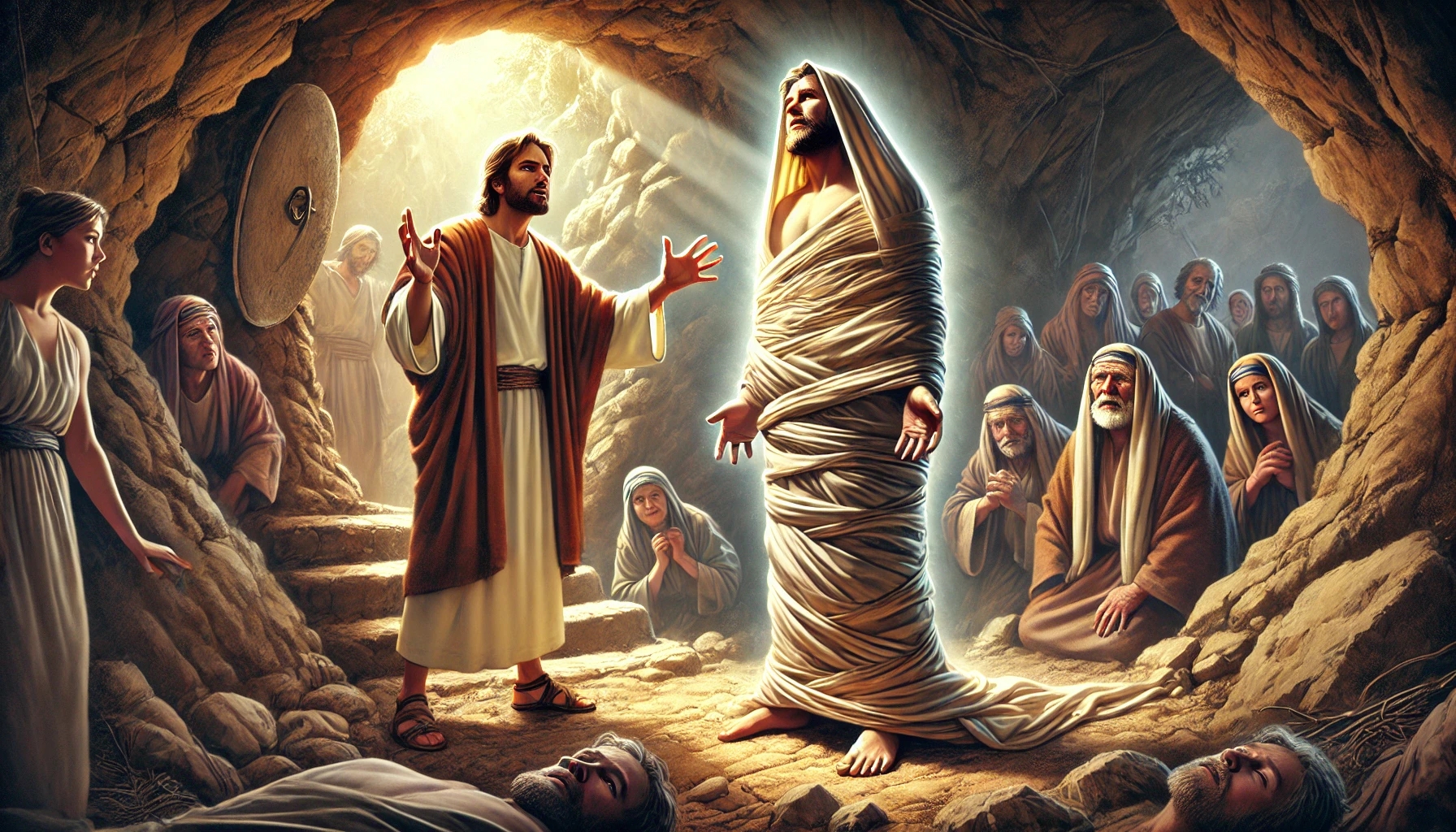
2.5 The Resurrection of Lazarus
Jesus’ Power Over Death and the Revelation of His Divinity
The raising of Lazarus in John 11 is one of the most profound stories in the Gospel of John, revealing both sorrow and hope. The death of Lazarus brings sadness and despair into the lives of his family and friends. The lament of the sisters, that Lazarus would still be alive if Jesus had come in time, reflects their deep disappointment (John 11:21, 32). Jesus’ own tears also show that He understands the pain of loss (John 11:35).
However, Jesus’ apparent delay served a much higher purpose. Jesus knew from the start that Lazarus would die, but He used this occasion to reveal a deeper truth: His power over life and death. By raising Lazarus, Jesus demonstrated that He is not merely a prophet or healer but the Creator and Lord of life itself. Martha, Lazarus’ sister, confirms this realization when she acknowledges Jesus as the Messiah and the Son of God (John 11:27).
Significance for Faith: Jesus’ statement in John 11:25-26, “I am the resurrection and the life,” is central to the Christian understanding of life and death. It reveals that death does not have the final word and that faith in Jesus extends beyond physical death. Jesus’ power over death points to His divine nature and gives believers hope for eternal life. This story shows us that God works even in seemingly hopeless situations, and His delays do not mean He has forgotten us—they mean He is planning something greater that will reveal His glory.
In daily life, this means that during times of suffering and loss, we are reminded that Jesus is our deepest hope. Even when we don’t understand the reasons for God’s delays, we can trust that He always has the power to bring life and renewal, even in the most hopeless moments.
Read John 11:38–44. What did Jesus do to substantiate His claim?
The raising of Lazarus in John 11 is a powerful narrative that highlights both the deep emotions of human grief and the transformative hope through Jesus Christ. The story begins with the sadness over the death of a beloved friend and the despair of the family. Martha and Mary express their disappointment that Jesus did not arrive in time to heal Lazarus. Their words, “Lord, if you had been here, my brother would not have died” (John 11:21, 32), reflect a common human experience: the question of “Why?” in moments of loss and need.
Jesus’ own tears (John 11:35) reveal His humanity and His empathy for the pain we experience through death. However, beneath this grief, Jesus reveals His true mission: He shows that He has power over death. Jesus’ delayed arrival, which might initially be seen as negligence, served a greater purpose in revealing the profound divine truth that He is the Creator of life. By raising Lazarus, He demonstrates His divine authority over both life and death.
Significance for Faith: Jesus’ statement, “I am the resurrection and the life” (John 11:25), forms the heart of the Christian faith. It points to the fact that physical death is not the end and that Jesus has the power to grant life that transcends death. This revelation gives believers hope for eternal life and the assurance that Jesus possesses a deeper, life-giving power in the midst of grief and loss.
Application in Daily Life: In our daily lives, this story teaches us that God’s ways do not always align with our expectations, but He always has a greater plan that surpasses our current understanding. In moments of suffering, loss, or delay, we should remember that Jesus is our ultimate hope. Even if we do not always understand the reason for God’s delays, we can trust that He wants to reveal a greater glory—a glory that allows us to look beyond the earthly and grants us new hope.
The raising of Lazarus is a powerful testament that God’s plan always brings life and renewal, even in the darkest moments of our lives.
Connection to Our Daily Life and Faith:
-
God’s Timing and Trust in Him: We often experience delays or feel that God is not intervening in difficult situations. The story of Lazarus shows us that God’s delays are not due to negligence or indifference but are always part of a greater plan to reveal His glory. In our daily lives, this teaches us to practice patience and trust that God has not forgotten us, even when His answers to our prayers do not come immediately.
-
Jesus as Our Ultimate Hope: Jesus explains in John 11:25 that He is the resurrection and the life, which means that He has power not only over physical death but also over our current situations of suffering and need. In our daily lives, this means that Jesus should be our first resort—not only for our eternal hope but also in every difficult situation we face. He can bring life into every seemingly hopeless situation.
-
Grief and Compassion: Jesus’ own tears in John 11:35 remind us that He understands our human emotions and shares in our suffering. In times of grief and loss, we can be assured that Jesus is near and understands our pain. This realization can bring us comfort and strength during times of sorrow.
-
Trusting in God’s Power Over Death: The raising of Lazarus shows that death does not have the final word. For us, this means that faith in Jesus not only gives us hope for eternal life but also empowers us to view physical death differently. Death is not the end but a transition into eternal communion with God.
-
Growth in Faith Through Crisis: Martha and Mary had to go through the crisis of their brother’s death to deepen their understanding of Jesus’ true power and divine nature. Likewise, in our own lives, crises and difficult times can help us strengthen our faith and understand more about God’s nature and plan for us. These challenges can be a way to deepen our relationship with God and renew our faith.
Conclusion: The story of Lazarus teaches us that God’s plan is greater than our current understanding. We can trust that He is working even in difficult times and delays to bring life, hope, and renewal. In our daily lives, we should always remember that Jesus is the ultimate source of life—not only in this life but also in the life to come.


